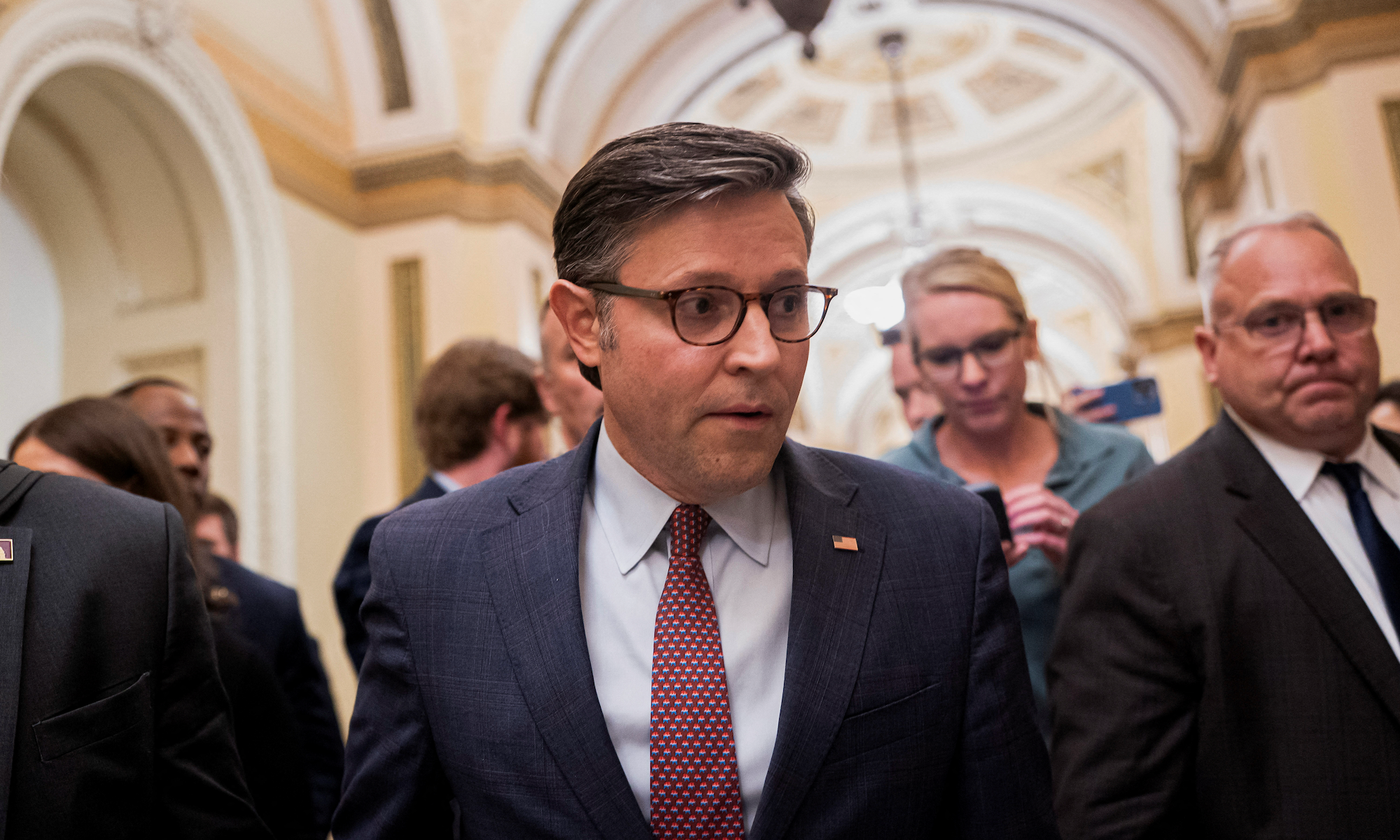Republicans in Congress have a ticking time bomb that's motivating them to not stall too long in their efforts to pass President Donald Trump's so-called "One Big Beautiful Bill Act."
NBC News reported Wednesday that top Republicans in both the House of Representatives and U.S. Senate are eager to pass H.R. 1 — the 1,037-page tax and spending bill currently being debated in the Senate — before the United States is scheduled to exceed its statutory borrowing limit in mid-July. Senate Majority Leader John Thune (R-S.D.) told the network "there is no plan B" if Congress fails to raise the debt ceiling in the next six weeks. Presumably, a backup plan should Republicans fail to increase the debt ceiling in a party-line bill would be to make concessions to Democrats in order to win over enough support from the opposition party to pass the legislation.
"“It’s Plan A. We have to get it done," he said. "Failure is not an option.”
READ MORE: Trump voter admits he has 'a little buyer's remorse' after losing a third of his workforce
“We should be set an expectation that we’re getting this done in July, and it includes the debt ceiling,” Sen. Thom Tillis, (R-N.C.) said. “I think the minute you start talking about a backup plan, you’re going to have a backup plan.”
Currently, the budget bill raises the debt ceiling by $4 trillion to $5 trillion, so the U.S. can keep borrowing and servicing its debt. However, some hardline conservatives in both the House and Senate are hesitant to increase the borrowing limit (which doesn't require any additional spending) without making additional spending cuts elsewhere. Sen. Ron Johnson (R-Wisc.) said in January that he would strongly oppose any effort to abolish the debt ceiling — something that both Trump and Sen. Elizabeth Warren (D-Mass.) publicly agreed on earlier this month.
"“I am very pleased to announce that, after all of these years, I agree with Senator Elizabeth Warren on SOMETHING," Trump said in a Truth Social post. "The Debt Limit should be entirely scrapped to prevent an Economic catastrophe. It is too devastating to be put in the hands of political people that may want to use it despite the horrendous effect it could have on our Country and, indirectly, even the World."
If the U.S. were to fail to raise the borrowing limit, it could end up destabilizing the global economy, as the U.S. Treasury securities that make up the vast bulk of American debt would no longer be guaranteed by the full faith and credit of the United States government. The concept of the debt ceiling dates back to 1917, when it was included in the Second Liberty Bond Act to encourage fiscally conservative policy. However, that was before the U.S. moved off of the Gold Standard under President Franklin Delano Roosevelt, and before the U.S. dollar was fully unlinked from gold after President Richard Nixon ended the Bretton Woods Agreement in the 1970s. Now, the U.S. money supply is fully regulated by Congress, with the Constitution stipulating that Congress has the sole ability to "coin money."
READ MORE: 'Who allowed this?' Veterans slam Trump for 'dangerous' move to screen troops for loyalty
Click here to read NBC's report in full.
